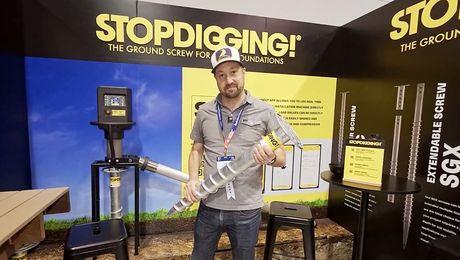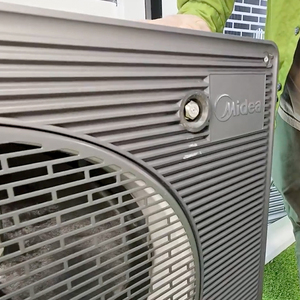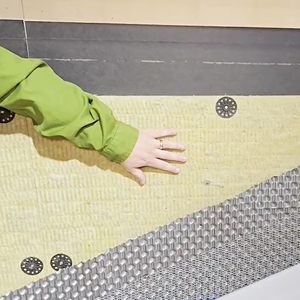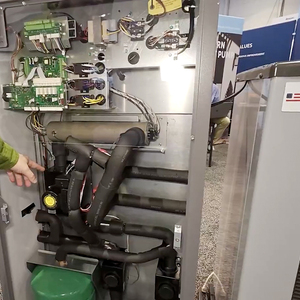My wife and I are planning to build a home this year. I spoke with an architect who insists we build an “Energy Efficient House”. He claims his houses are 5 star energy efficient. Due to his high fees I have to pass on him drawing our plans. What type to things can I do to build my house more efficient? He stated poured or block basement wall are a big mistake they loose to much heat, is this BS? any suggestions?
Thanks



















Replies
Where are you located? Your climate will make a biiiiiiig difference; without knowing that, there cannot be any useful answers to your question.
Around here (Atlantic Canada), the more energy efficient houses use ICF foundations; 2x6 stud walls with blown in insulation, and 1" foam on outside of studs; properly installed and detailed vapor barriers and air exchange systems, etc.
It's currently -25 C with a -33C windchill. I'm glad it wasn't my turn to walk DD to the bus stop. Hey, Piffin, what's the temp on the island today?
Thanks for the info!
Now that is cold! I guess I cannot complain about our 9 degree temps we are experiencing today. We are building in the suburbs of Detroit, Mi. Any suggestions for finishing concretewall in a finished basement?
There is no one right or wrong way to do this.
ICF's are one way to do the foundation. But you can also do insulation from the outside or from the inside.
I gather that you are not building this yourself or wanting to act as you own contractor and that you are just being getting started.
But at this point I would not be so concerned about the details, but to learn more about the options.
While there are many different ways to accomplish this one of the important things is find a contractor that is familar with building energy effienct houses in YOUR AREA.
Here is a good starting point.
http://www.buildingscience.com/housesthatwork/cold/default.htm
And do a google on - michigan energy star homes -
That will give you lots of resources.
Thanks Bill,
This is the 1st house we are having built. No I am not building myself or being my own contractor. Don't know enough nor do I have the time to dedicate to te project. I will look into the web site and continue my research.
Andy
You say "He claims his houses are 5 star energy efficient." Never heard that terminology before...
I have managed the construction of a number of Energy Star certified homes. Energy star is a program set up by the US EPA. The basis of what I learned is this: There are 3 facets to energy efficient homes:
1) Framing and building details.
2) A perfect insulation installation.
3) a great HVAC installation.
I'll leave you to research the above a bit, but I'll give you a few comments on #3: This means a) the proper exhaust fans to evacuate high humidity air from the kitchen and baths, b) for your geography, a HRV system that introduces fresh air into the home, and d) a high efficiency heat/ac unit and, assuming a forced air heating/cooling system, a duct system that is properly insulated and is limited to around 1 - 3% leakage. Average duct systems have 10 - 20% leakage, but keeping the ducts entirely in the living space relaxes this requirement some (as opposed to having them in an attic or crawl space).
There are numerous posts in this forum covering energy efficient construction, from tightness, to types of insulation, windows, heating systems, heat recovery devices, wall thickness, water heating etc....
Both poured or block walls can be effectively insulated, or royally screwed up.
I have nothing against architects, but you don't need one just to get an efficient home, and regardless of what he specs, quality,and attention to detail will make or break the bank in energy costs.
Also beware the builder who says "this is the way I have always done it", every time you ask a question. There are some new products that experienced people have come to accept that can really help your house.
I am consulting on a 5000 sq ft home for a friend. A few suggestions have been answered by the builder with," well yeah, that would be better, less leaky, but we don't build to perfection, so we don't...seal there, or insulate there, or use foam, or plan for ductwork (that's the hvac man's job to work out)...Bottom line, he builds a sorry home for a high price, and I have to keep reminding my client that he is the customer.
Suggest you read the forum, ask a lot of questions, get well educated before making your large investment. Post back to me and I'll help where I can. Paul
Thanks Paul, I'll take you up on your offer. Looks like I have a great deal of research to do!
I agree with above posters, but would like to add- read fine homebuildings for the pro series book on weatherizing and insulating your home, its available at the library where I live. it address many issues, and as a framer, plumber, builder, I was amazed at how much I learned and how diverse the expert opinions are on what to do.
one thing I learned is that the entire house is a system and to build from a point of view that "that's the duct guys problem is a mistake". it should be a waltz not a jerk. for me a super insulated house involves either SIP's properly sealed, or spray foam insulation. now with spray foam the manufacturer recommends the insulation installer have input on building design, in that the foam works better with a light gauge steel stud that is hollow and the foam can completely fill the voids. the foam also provides a seal that would otherwise be difficult to get. if you are not going with foam do an air test like they do in the book, to make sure you get the envelope properly sealed and call for it in the plans. with steel framing you have to isolate the steel to prevent thermal transmission, again further complicating the issue.
you don't need an architect, in fact where I live in california anyone can design a two story wood frame structure. if it gets by the plan checkers you can get permitted to build to that blueprint, but an unlicensed person can not design a SIP or light gauge frame single story home. those in my opinion are superior to wood frame construction for quality of insulating the building envelope. I would recommend a design build type firm, I think that you get the most house for the money with this type of approach as the builder and designer work in concert achieving an integrated system.
the other thing I want to mention in building energy efficient is radiant heating. I would use a staple up pex radiant underfloor type of heating to warm the home regardless of what other type of air systems you have in place for cooling and ventilation, I think this is a superior system to warming air in terms of energy efficiency and comfort of living space.
Skids, well put.
Stogman, not my business, but this is probably a major investment for you and wife. That said, the amount of time you spend researching and getting a good basis for what will be an efficient package, will pay large dividends. PaulEnergy Consultant and author of Practical Energy Cost Reduction for the Home
"...the other thing I want to mention in building energy efficient is radiant heating. I would use a staple up pex radiant underfloor type of heating to warm the home regardless of what other type of air systems you have in place for cooling and ventilation, I think this is a superior system to warming air in terms of energy efficiency and comfort of living space...."
I plan on building an energy efficient house also, 2,000-2,500 sq. ft Colonial. I do want to use radiant floor heating....if you use radiant floor heating, how does the air conditioning and air exchanger fit into the equation? Are they just tried as a separate unit/system from the heating?
Are there any tax advantages of having a "5-star" home?
yes, you are correct sir. air movement for cooling and ventilation is separate from a radiant system if you use a water heater for space radiant heat. there are other systems that should be considered in design stage to figure most efficient application for your requirements.
i do not know of any tax advantages or what the requirements would be to obtain advntages if there are any. i would certainly ask a tax man about it. here in california there were credits for solar electrical systems, i dont know if its still ongoing with the budget crisis. the best bet is to check locally with utility suppliers as a start.
look at radiantec 's website